- عنوان کتاب: The Law for Energy Prosumers
- نویسنده: Daniela Aguilar Abaunza
- حوزه: عدالت انرژی
- سال انتشار: 2022
- تعداد صفحه: 271
- زبان اصلی: انگلیسی
- نوع فایل: pdf
- حجم فایل: 4.94 مگابایت
طبق اساطیر یونان باستان، پرومتئوس تیتان که برای وضعیت ناعادلانه و تاریکی که نوع بشر در آن زندگی می کرد متاسف بود، آتش را از زئوس، فرمانروای عالی خدایان ربود. او آن را به عنوان هدیه ای به بشریت بخشید و پیشرفت و روشنگری را به ارمغان آورد. برای این عمل سخاوتمندانه، زئوس پرومتئوس را مجازات کرد و او را به صخره ای زنجیر کرد، جایی که هر روز عقابی برای خوردن جگر او می آمد، کبدی که تا روز بعد دوباره رشد می کرد و بی پایان تیتان را عذاب می داد. پس از سالها، از خوش شانسی او و بشریت، هرکول، قهرمان نیمه خدا، نیمه انسان، به کمک او آمد، عقاب را کشت و پرومتئوس را از زنجیر آزاد کرد. این افسانه موضوع و هدف این اثر را معرفی می کند. دانشمندان، کارآفرینان، مهندسان، مبتکران (پرومته) فناوریهای جدیدی (آتش) ایجاد کردهاند که امروزه به مصرفکنندگان (انسانیت) این امکان را میدهد تا دیگر به شرکتهای بزرگ انرژی (زئوس) برای تامین برق آنها وابسته نباشند. این فناوریهای جدید آنها را قادر میسازد تا انرژی خود را در محل تولید کنند، نیازهای انرژی خود را مدیریت کنند و به طور فعال با سیستم برق به شیوهای پایدار تعامل داشته باشند (روشنگری). با این حال، این فناوریها و مدلهای کسبوکار در حال ظهور با موانع متعددی از جمله چالشهای مالی، فنی، نهادی، فرهنگی و قانونی (عقاب و زنجیر) مواجه هستند. پرومتئوس قرن بیست و یکم شایسته رهایی از زنجیر و پیوستن مجدد به نوع بشر است، زیرا همه باید به آتش دسترسی داشته باشند، هم بشریت و هم خدایان. سوالی که باقی می ماند این است که هرکول چه کسی خواهد بود؟ چه کسی مسئولیت حذف زنجیره هایی را که نوآوری را محدود می کند و مصرف کنندگان را در مدیریت نیازهای انرژی خود محدود می کند، بر عهده می گیرد؟ بخش برق به دلیل نوآوری های تکنولوژیکی، همراه با بی اعتمادی به شرکت های انرژی متعارف و افزایش آگاهی از تغییرات آب و هوایی در آستانه تغییر قابل توجهی قرار دارد. چنین تغییری مستلزم نقش فعالتری برای مصرفکنندگانی است که میتوانند عرضه انرژی خود را تولید و مدیریت کنند و مازاد انرژی خود را تجارت یا ذخیره کنند. عبارتی که برای توصیف این وضعیت استفاده میشود، «مصرف کننده انرژی» است. این اصطلاح به ترکیب تولید و مصرف در یک واحد یعنی فروشنده اشاره دارد. فناوریها و مدلهای کسبوکار جدید، مانند تولید پراکنده، تجارت همتا به همتا، شبکههای هوشمند، مدیریت سمت تقاضا و ذخیرهسازی انرژی، فرصتی درخشان برای تحقق بخشیدن به مصرفکنندگان انرژی ارائه میدهند. این مدل در حال ظهور میتواند به مزایای عظیمی از جمله افزایش امنیت انرژی، کاهش و سازگاری با تغییرات آب و هوایی، بهبود پایداری و کارایی، دموکراسی انرژی، خدمات تامین انرژی اقتصادیتر و کارآمدتر و رشد مزایای مشتری منجر شود. با این وجود، ظهور مصرف کنندگان انرژی چالش های جدیدی را برای سیستم های قانونی به همراه دارد. سیستمهای حقوقی کنونی زیربنای عرضه برق سنتی است که بر اساس تمایز واضح بین مصرفکنندگان و تولیدکنندگان ایجاد شد. نقشهای نوظهور و تداخلپذیر عرضهکنندگان انرژی، عدم اطمینان، شکافهای قانونی و پرسشهایی را برای سیستم حقوقی فعلی ایجاد میکند که منجر به مقررات منسوخ شده و قطع ارتباط مقرراتی میشود. چنین قطع ارتباط، شکافی است بین فناوریهای نوظهور که مجموعهای از ارزشها و امکانات جدید را به ارمغان میآورند و مقررات قابل اجرا که نمیتوانند به اندازه کافی سریع با شرایط در حال تغییر سازگار شوند. در نتیجه ما نمی دانیم به چه قانون و مقررات جدیدی نیاز است یا نقش قانون باید چه باشد. بنابراین، این سوال که چگونه می توان سیستم حقوقی فعلی را تطبیق داد یا اینکه آیا نیاز به ایجاد سیستم جدید وجود دارد اکنون برای بحث باز است. این کتاب توجه خود را در سه کشور با بازارهای برق آزاد شده متمرکز می کند تا به درک برخی از رویکردهای قانونی فعلی برای مصرف کنندگان کمک کند. سه کشور انتخاب شده هلند، نیوزلند و کلمبیا هستند. چنین کشورهای متنوع و از نظر جغرافیایی دوری برای تجزیه و تحلیل نحوه پاسخگویی سیستمهای برق و چارچوبهای قانونی که چالشهای مختلف سیاست انرژی را تجربه میکنند، به فناوریهای جدیدی که نقش فعالتری را برای مصرفکنندگان ممکن میسازد، پاسخ میدهند، انتخاب شدند. از یک سو، نیوزلند یک کشور توسعه یافته با جمعیت کمی است که در سرتاسر قلمرو توزیع شده است که منبع اصلی تولید انرژی متمرکز آن نیروگاه آبی با پتانسیل عظیم انرژی تجدیدپذیر است. از سوی دیگر، کلمبیا کشوری در حال توسعه با جمعیت بسیار بیشتری است که در شهرهای بزرگ متمرکز شده اند و نسبت کمی از شهروندان در مناطق خارج از شبکه زندگی می کنند. همانند نیوزلند، انرژی آبی منبع اصلی انرژی است و این کشور همچنین دارای پتانسیل قابل توجهی از انرژی های تجدیدپذیر است.
According to ancient Greek mythology, the Titan Prometheus, feeling sorry for the unfair state and darkness in which humankind lived, stole the fire from Zeus, the supreme ruler of the Gods. He gave it as a gift to humanity, bringing progress and enlightenment. For this generous act, Zeus punished Prometheus and chained him to a rock, where every day an eagle came to eat his liver, which would grow again by the next day, endlessly tormenting the Titan. After many years, luckily for him and humankind, Hercules, the hero, half-god, half-human, came to his aid, killed the eagle and freed Prometheus from the chains.1
This legend introduces the topic and objective of this work. Scientists, entrepreneurs, engineers, innovators (Prometheus) have created new technologies (the fire) that today allows consumers (humanity) to no longer be dependent on large energy companies (Zeus) to supply them with electricity. These new technolo-gies enable them to generate, in situ, their energy, manage their energy needs and interact actively with the electricity system in a sustainable manner (enlightenment). However, these emerging technologies and business models face multiple obstacles, including financial, technical, institutional, cultural and legal challenges (eagle and chains). The twenty-first Century Prometheus deserves to be free from chains and be reunited with humankind because everyone should have access to fire, both humanity and the Gods. The question that remains is, who will be Hercules? Who will take on the responsibility of removing the chains that limit innovation and restrict consumers in managing their own energy needs?
The electricity sector is on the verge of significant change because of technological innovation, together with distrust in conventional energy companies and increasing awareness of climate change. Such a shift implies a more active role for consumers who can generate and manage their energy supply and trade or store their energy surplus. The expression used to describe this situation is ‘energy prosumer’. This term refers to the combination of production and consumption in one entity, the prosumer. New technologies and business models, such as distributed generation, peer-to-peer trading, smart grids, demand-side management and energy storage, offer a brilliant opportunity for making energy prosumers a reality. This emerging model could lead to enormous benefits including enhancing energy security, mitigation and adaptation to climate change, improved sustainability and efficiency, energy democracy, a more economical and efficient energy supply service and a growth in customer benefits.
Nevertheless, the rise of energy prosumers brings new challenges to legal systems. Current legal systems underpin the traditional electricity supply, which was estab-lished based on a clear distinction between consumers and producers. The emerging and overlapping roles of energy prosumers create uncertainty, legal gaps and ques-tions for the current legal system, resulting in outdated regulation and regulatory disconnections. Such disconnection is the gap between the emerging technologies that bring a new set of values and possibilities and the applicable regulations which cannot adapt fast enough to the changing circumstances. As a result, we do not know what new legislation and regulation are needed or what the role of law should be. Thus, the question of how to adapt the present legal system or whether there is a need to create a new one is now open for debate.
This book focuses its attention in three countries with liberalised electricity markets to help understand some of the current legal approaches to prosumers. The three selected countries are the Netherlands, New Zealand and Colombia. Such diverse and geographically distant countries were chosen to analyse how electricity systems and legal frameworks experiencing different energy policy challenges are responding to the new technologies that enable a more active role for consumers.
On one hand, New Zealand is a developed country with a small population distributed throughout the territory whose primary centralised energy generation resource is hydropower with immense renewable energy potential. On the other hand, Colombia is a developing country with a much larger population concentrated in the big cities, and a small proportion of citizens living in off-grid areas. As with New Zealand, hydropower is the main energy resource, and the country also has significant renewable energy potential.
این کتاب را میتوانید از لینک زیر بصورت رایگان دانلود کنید:
Download: The Law for Energy Prosumers




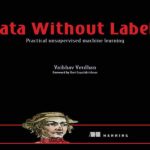
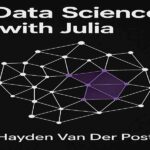
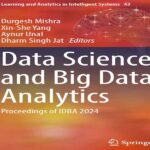
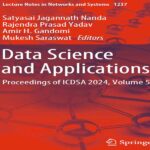
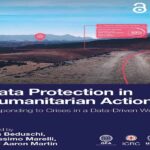

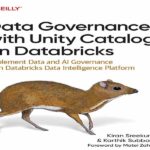

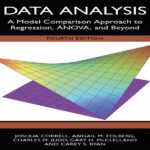
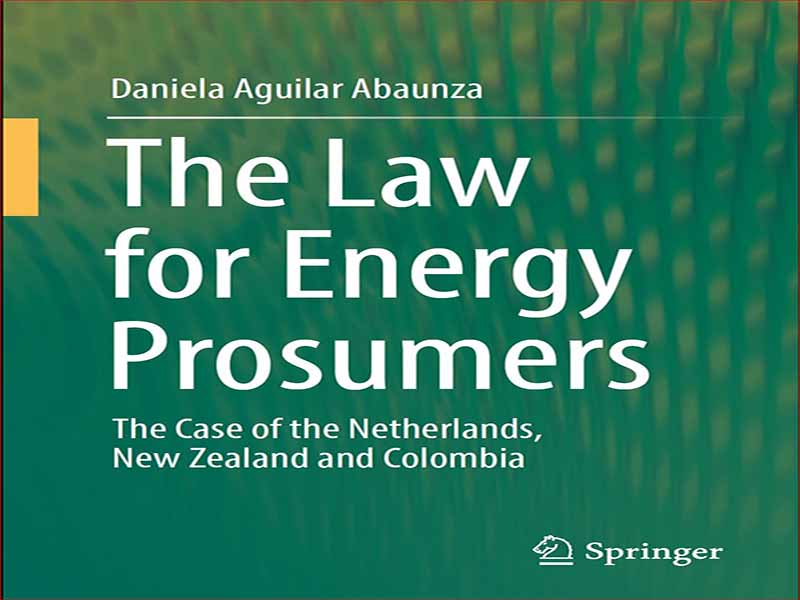

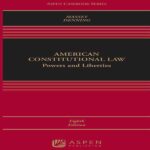




















نظرات کاربران